World Humanitarian Day
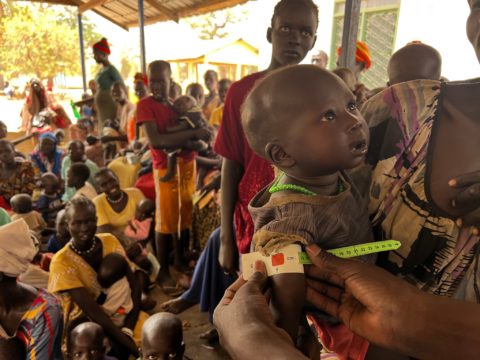
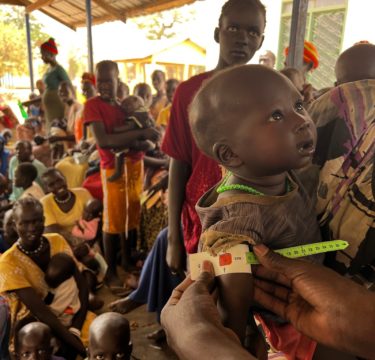
There is famine in parts of Sudan, a prolonged war in Ukraine, and numerous conflicts in the Middle East. In all these places, employees and volunteers of the Polish Center for International Aid (PCPM) first assess what kind of assistance is most needed and then proceed with its implementation. What does providing aid in humanitarian crises look like?
When Conflict Prolongs
Initially, the most important thing is to ensure safety and basic needs. That’s why in Ukraine, we started with evacuations and organizing safe spaces, food, hygiene, and financial assistance. Now, we’re helping with everyday life and giving hope for the future. PCPM operates in western Ukraine in the Truskavets region, in the southern Kherson and Mykolaiv oblasts, and in the northeastern Kharkiv oblast. More excellent knowledge of local conditions also increases the chance of better-adapting aid to current challenges. Therefore, PCPM decided to open an office in Kyiv, which serves as a coordination center on the ground.
A Roof Over Your Head, School, Clinic, and Seeds
– In Ukraine, we’ve moved away from the simple model of ‘buy a package and deliver a package.’ Support covers very different areas in different regions – depending on local needs. In the West, we are equipping shelters in schools and clinics with diagnostic equipment. In the Mykolaiv oblast, hospitals and social care homes are provided with hygiene products such as adult diapers – until the end of the year. In the north, we are helping people return to more or less everyday life, repairing roofs damaged in rocket attacks, installing windows and doors, and providing seeds for home gardens – says Anna Radecka, project coordinator for PCPM in Ukraine.
Although even a simple package can make a huge difference, this is the case in villages near the front line, where PCPM volunteers reach. They regularly travel to villages without any infrastructure in the Zaporizhzhia oblast. They help mainly the elderly, lonely, sick, and disabled. The villages are depopulated, leaving only those who had nowhere to flee.
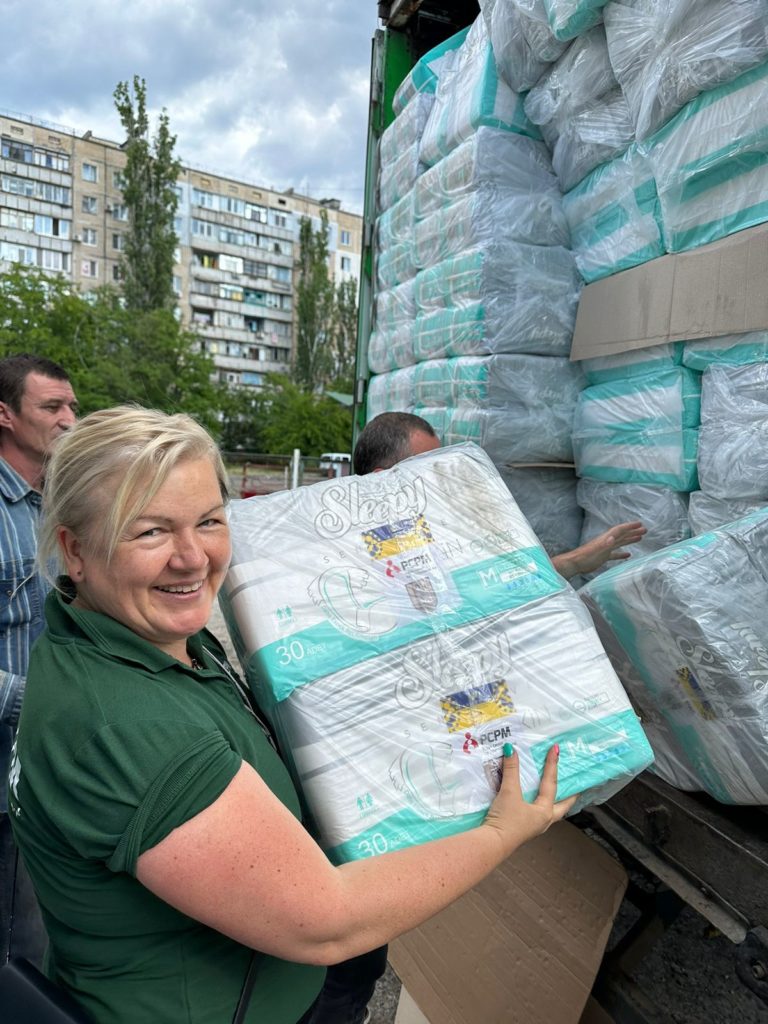
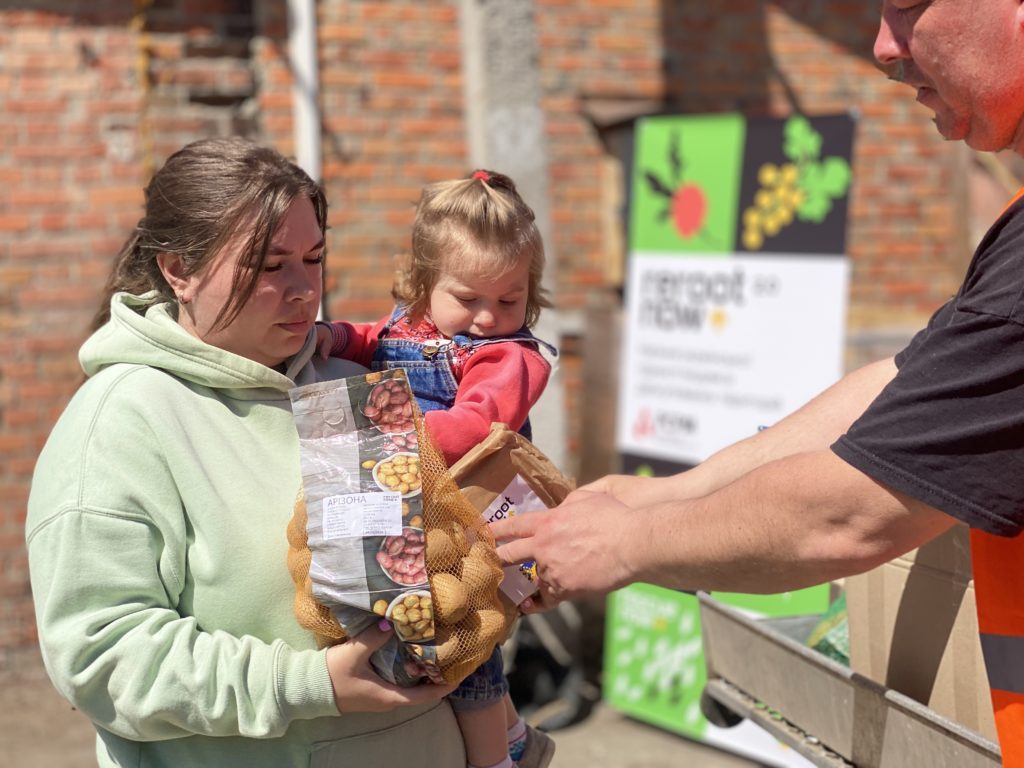
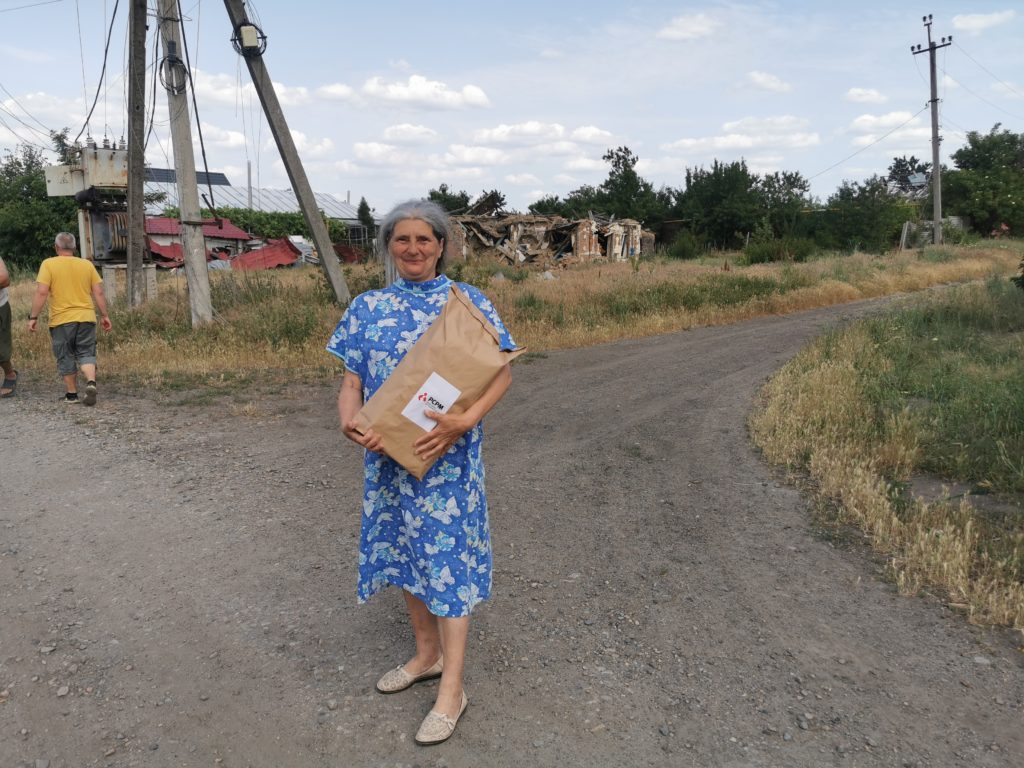
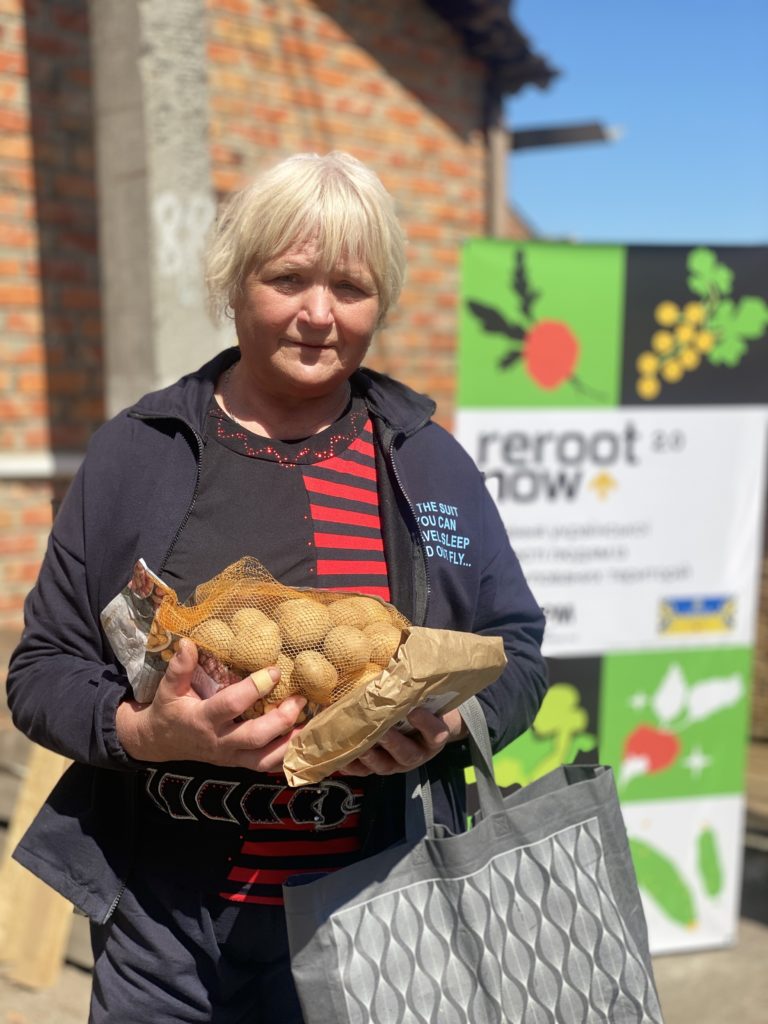
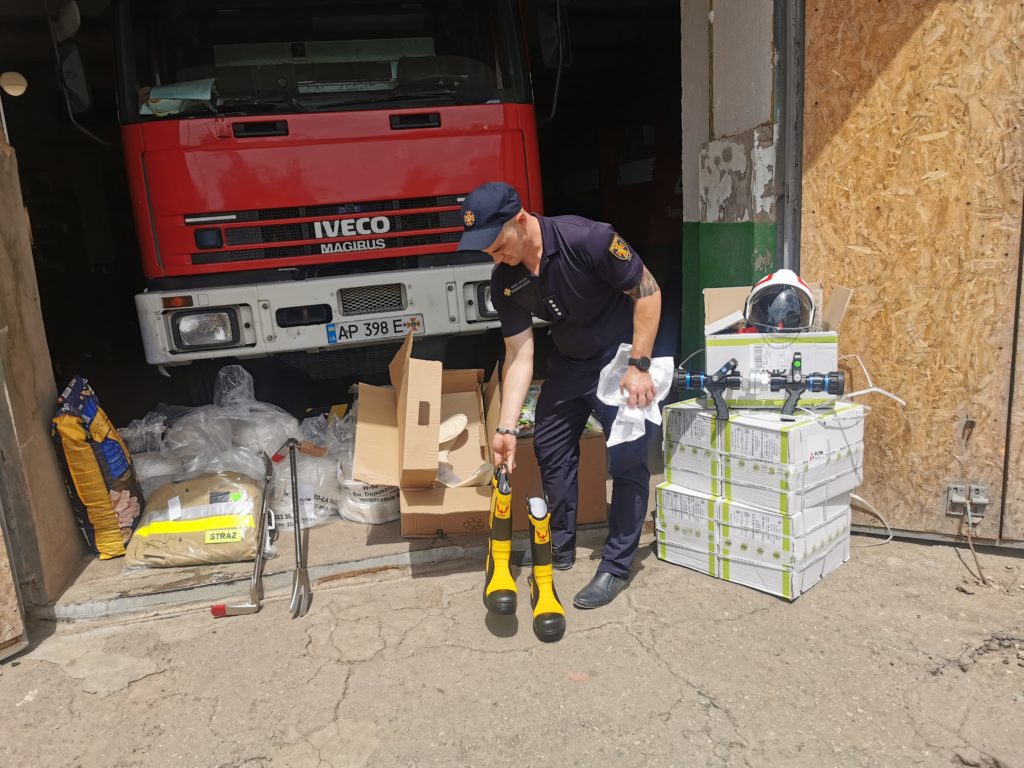
Local firefighters, who are provided with equipment and protective clothing by volunteers, ensure the safety of the locals. Everything is used up very quickly on the spot.
A Package Can Also Change the Quality of Life
For over 12 years, PCPM has been helping in Lebanon. Initially, mainly Syrian refugees, and now also Lebanese families, after the country plunged into its worst economic crisis in decades.
Supported by the Lebanon Humanitarian Fund (LHF) and building on the recently concluded LHF-funded project, the Foundation will continue to provide multilayered support to the most vulnerable populations in Lebanon through a newly granted LHF-funded project. This includes distributing food and hygiene kits to families with elderly members, persons with disabilities, or individuals suffering from chronic illnesses. These packages are particularly valuable as they will contain fresh produce like vegetables, fruits, and meat—items that have become prohibitively expensive for many. Additionally, PCPM will offer cash assistance for rent. This will be made possible under the LHF-funded project titled “Comprehensive Support for Vulnerable Households with Elderly, PwSN in Wadi Khaled, Sahel, and Jord El Qaitaa” from August 2024 until May 2025.
Will a New War Break Out?
After 18 years, the threat of war again hung over Lebanon. The Foundation has developed contingency plans and is prepared to continue its assistance, even in the event of an escalation of the conflict. For now, however, it operates by previous assumptions. The cleaning of the Al-Ostuan riverbed in the Akkar province is ongoing. Last winter, the river flooded, destroying local crops.
– We have already cleaned 1300 meters of the river out of the planned 2500 meters – says Rana Gabi, project coordinator for PCPM in Lebanon.
It is just one of the points of a three-year project funded under the Polish Aid program of the Ministry of Foreign Affairs. In the next stages, the Foundation will build irrigation canals and install photovoltaic panels on one of the public buildings in Sed El Bauchrieh. PCPM will repair damaged roads and rebuild culverts. Additionally, the Foundation will conduct crisis management training for representatives of local governments.

The Biggest Humanitarian Crisis
Famine has been officially declared in parts of Sudan, mainly North Darfur. Among the causes of the catastrophic situation, not only the food crisis, the most important is the ongoing civil war, which has been raging for over 15 months. PCPM operates right on the border with Sudan – in South Sudan, where it runs a Supplementary Feeding Center and a mobile clinic.
According to the International Organization for Migration (IOM), over 10 million Sudanese, or 20% of the population, have been forced to leave their homes as a result of the war. The main reason for fleeing is hunger. Already, over 14 million children in Sudan need humanitarian assistance. Almost none of them attend school.
In the first half of 2024, nearly 6,000 children were admitted to the Gordhim Supplementary Feeding Center, often after a long journey through the bush, without food or even water. The children are incredibly exhausted, emaciated, and malnourished. Sometimes, two-year-old children weighing less than 6 kilograms and with an upper arm circumference of only 9.5 centimeters are admitted to the Center.
In the last six months, over half of the children who arrived in Gordhim were malnourished, including over 1,500 children under the age of five who were severely malnourished. The youngest need adequate amounts of protein and minerals to develop properly. If the body does not receive enough protein, it begins to “burn” children’s muscles. On the border of Sudan and South Sudan, there is often nothing to eat, which is a deadly threat for the youngest.
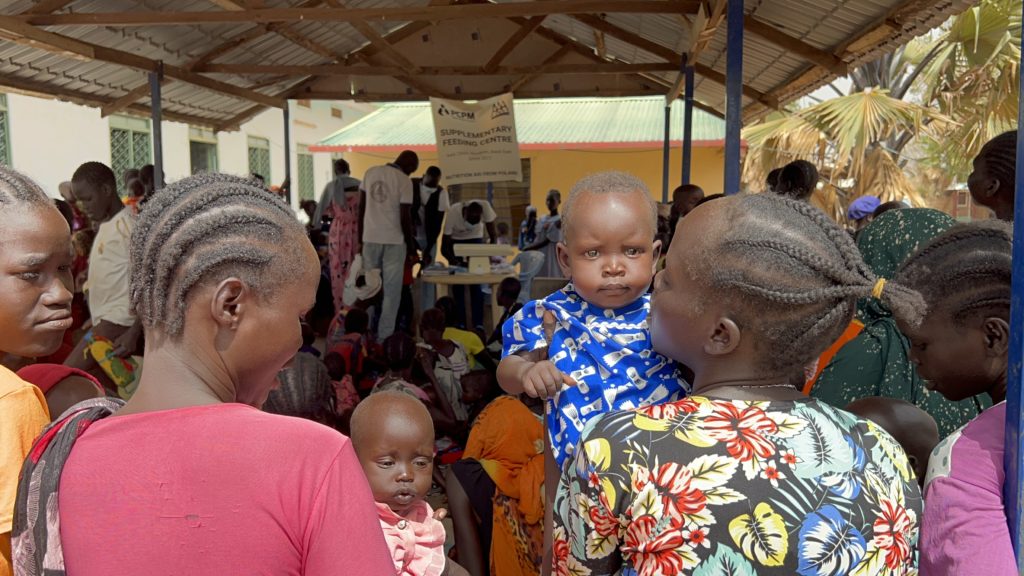
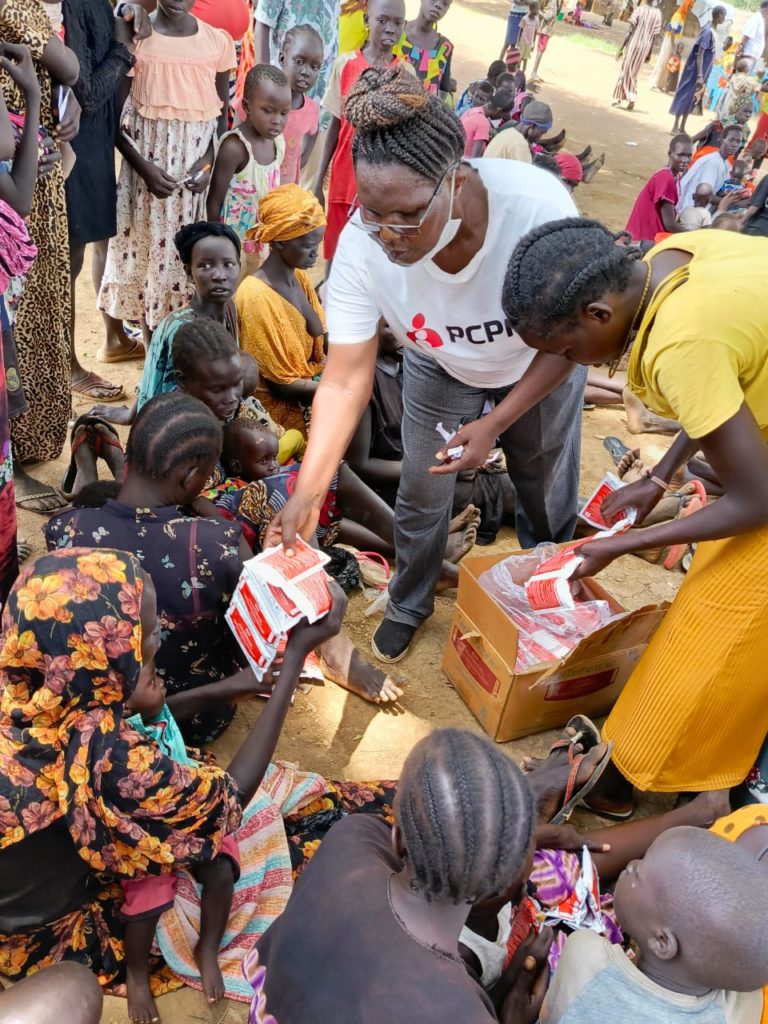
Over 2,500 children under the age of 5 benefited from the help of a mobile clinic operating on the refugee route from Sudan. Among them were also those who were severely malnourished. Hunger is one of many challenges for refugees. Infectious diseases are also a problem. The clinic diagnoses the most common ones, such as tuberculosis, malaria, and HIV. Clinic workers refer patients in the worst condition for treatment to larger centers such as Aweil, the state capital. The assistance provided by PCPM in Gordhim and the mobile clinic is only possible thanks to donations from Poles.
Remembering Those Who Died During Humanitarian Missions
World Humanitarian Day was established by the United Nations General Assembly in 2009. It commemorates the bombing attack on August 19, 2003, at the Canal Hotel in Baghdad, Iraq. 22 people were killed, including the UN Special Representative of the Secretary-General for Iraq, Sergio Vieira de Mello. On that tragic day in UN building in Baghdad, there was also the CEO of the PCPM Foundation, Dr. Wojtek Wilk.